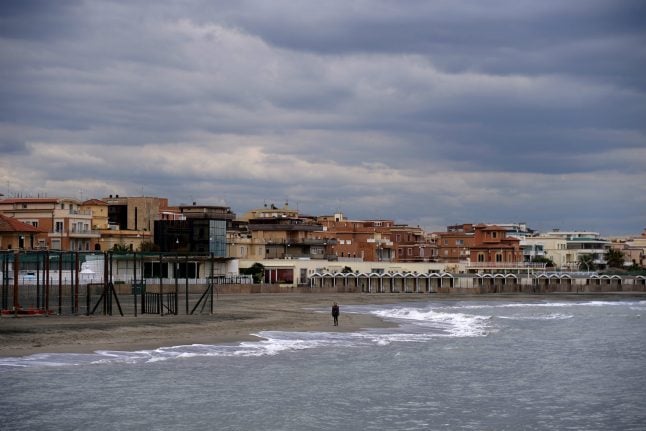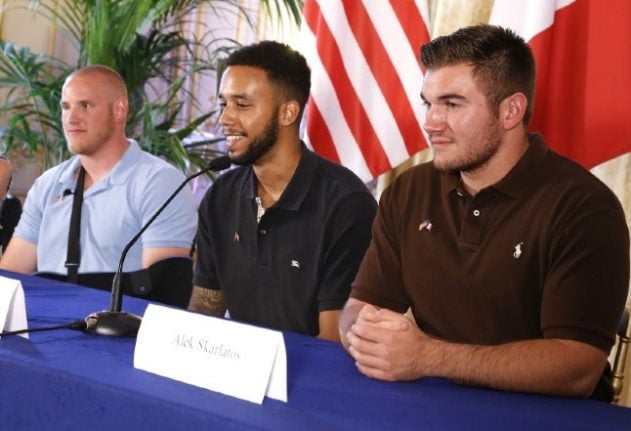Roberto Spada was filmed headbutting TV reporter Daniele Piervincenzi, before attacking him with a baton.
Piervincenzi had been investigating Spada's alleged links to the far-right CasaPound movement and his nose was fractured in the attack.
In Ostia on Friday dozens of Italian journalists protested in defence of freedom of speech after the attack on their colleague.
The town, which is situated on the outskirts of Rome, has a population of 85,000, many of whom live on impoverished estates.
Piervincenzi was questioning Spada for a report for national broadcaster Rai about municipal elections, two years after the local council was dissolved due to mafia infiltration.
CasaPound, suspected of links to organised crime in the area, won eight percent of the first round votes.
Italian police arrested Spada on Thursday for assault, with prosecutors saying his behaviour was typical of methods used by organised crime groups to control territory.
“If you don't see anything, hear anything or say anything, then you can live to be 100 here,” a sexagenarian resident of Ostia told AFP, declining to give his name.
“But if you want to change things, then you are going to have some major problems ahead,” he added.
“That should have happened a lot earlier. These problems are enrooted and now it's no good lopping off a branch because another will grow and the tree will be just the same.”
The attack on Piervincenzi didn't just upset fellow journalists. Ostia residents also turned out to defend freedom of expression.
“Let's just say that the presence of the press has forced law enforcement to lift the lid on the issue,” Silvia Frau, a resident, told AFP.
“I hope they stay once the media rush is over,” she added.
However, another local passing by said that the reporter “was looking for it and he got it”.
“He should have known when to stop. He was too insistent, he wanted to dig a little too deep”.
Rome Mayor Virginia Raggi, of the populist Five Star Movement, was one of the first politicians to react to the attack, calling the violence unacceptable and pledging a crackdown on crime.
“Spada's arrest is proof that there are no lawless areas in Italy,” the interior ministry said in a statement.
CasaPound came fourth in Sunday's first round voting in the municipal elections and is hoping to do better in the second round on November 19th.
It is calling on voters to kick out Raggi who it claims “hasn't even managed to move an abandoned mattress in 18 months”.
The Spada clan is notoriously violent. Seven members of the family were sentenced to a combined 56 years in jail in October, and Roberto's brother Carmine was ordered to serve 10 years last year for extortion and mafia association.
CasaPound insists that is all part of a campaign to discredit the movement.
“What CasaPound has done on the ground is anti-mafia work, anti-organised crime,” the group's vice president Simone Di Stefano said Thursday.
READ ALSO: Mobster arrested after attacking journalist in Italy



 Please whitelist us to continue reading.
Please whitelist us to continue reading.